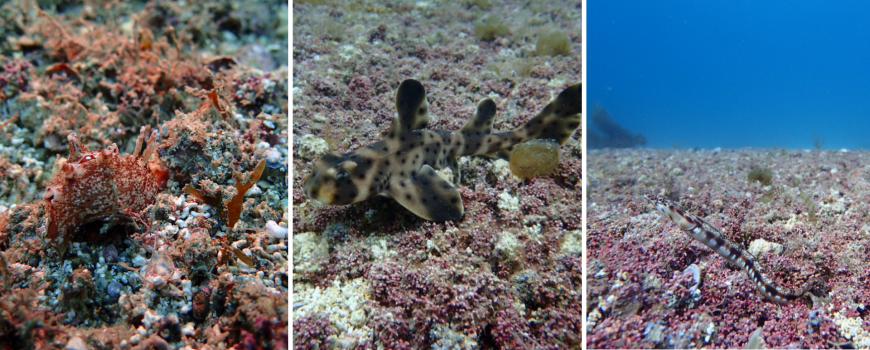Rhodolith beds are near-shore benthic coralline algal habitats occurring in 20% of Marine Protected Areas around Catalina Island. They support diverse communities of algae, invertebrates, and fish. These important habitats are being severely degraded by boat mooring chains, with a recent study showing 85% of surveyed beds having moderate to severe damage.
In this project, researchers plan to develop and test mooring designs that may reduce physical impacts to Catalina Island rhodolith beds, define quantitative metrics to evaluate short- and long-term rhodolith bed integrity, and evaluate the resiliency of rhodolith habitats to human impacts.
Specifically, the project objectives are: to identify and experimentally evaluate potential vessel mooring systems that may reduce impacts to rhodolith beds and other sensitive Catalina Island benthic habitats; to identify a suite of efficient field metrics to rigorously monitor integrity and recovery of rhodolith habitats; and to assess productivity and ecosystem functioning of rhodolith beds in order to evaluate restoration potential for recovery of impacted habitat.
The results of the study will provide guidance to maritime facility providers on how to reduce the impacts of vessel moorings. It will also provide critical data to inform resource managers about best management practices to protect, restore, and monitor important rhodolith habitats in California’s sensitive near-shore habitats.


